 Senior Fellow
Senior Fellow
[email protected]
Washington DC
202.601.2351
Activities
Miles Pomper is a Senior Fellow in the Washington DC office of CNS. His work focuses on nuclear energy, nuclear nonproliferation, nuclear security, and nuclear arms control. He holds a master’s degree in international affairs from Columbia University and a master’s degree in journalism from Northwestern University.
Areas of Research
- Nuclear energy
- Nuclear nonproliferation and arms control
- Nuclear security
Background
Before joining CNS he served as Editor-in-Chief of Arms Control Today from 2003-2009. Previously, he was the lead foreign policy reporter for CQ Weekly and Legi-Slate News Service, where he covered the full range of national security issues before Congress, and a Foreign Service Officer with the US Information Agency.
Education
- BA in History from Columbia University
- MA in international affairs from Columbia University
- MA in journalism from Northwestern University
CNS Work
- The Nuclear Security Summit Will Leave Unfinished Work
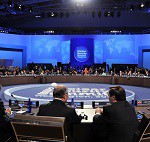 Analysis of what the Obama administration has accomplished and what remains to be done in the field of nuclear security.
Analysis of what the Obama administration has accomplished and what remains to be done in the field of nuclear security. - Russia-US Relations: Brinkmanship and Hostilities Continue
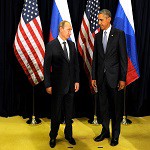 Article about up-to-date affairs between Russia and the US with consideration given to proxy players in between.
Article about up-to-date affairs between Russia and the US with consideration given to proxy players in between. - The Nuclear Security Summit Will Leave Unfinished Work
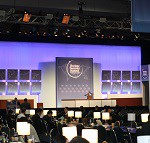 The uneven and limited nature of the summit process means that the nuclear security regime will be a patchwork of initiatives, with far too many holes.
The uneven and limited nature of the summit process means that the nuclear security regime will be a patchwork of initiatives, with far too many holes. - Treatment, Not Terror
 A new study by Miles A. Pomper, Ferenc Dalnoki-Veress, and George M. Moore, explores how to both promote cancer therapy in developing countries and prevent radiological terrorism.
A new study by Miles A. Pomper, Ferenc Dalnoki-Veress, and George M. Moore, explores how to both promote cancer therapy in developing countries and prevent radiological terrorism. - OP#24: Strengthening the ROK-US Nuclear Partnership
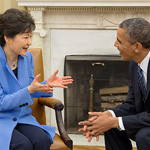 Occasional Paper #24: This report identifies challenges and opportunities for the next phase of the ROK-US nuclear partnership.
Occasional Paper #24: This report identifies challenges and opportunities for the next phase of the ROK-US nuclear partnership. - Why Obama’s Nuclear Nonproliferation Commitments Fell Short
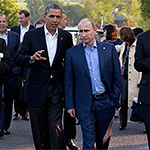 Obama’s presidency has served as an object lesson in the limits of a US president’s ability to shape a global nuclear order amid competing factors, abroad and domestic.
Obama’s presidency has served as an object lesson in the limits of a US president’s ability to shape a global nuclear order amid competing factors, abroad and domestic. - Behavioral Economics and Nuclear Weapons
 This CNS report explores implications of research in behavioral economics for policies related to nuclear weapons including nonproliferation efforts
This CNS report explores implications of research in behavioral economics for policies related to nuclear weapons including nonproliferation efforts - Ensuring Deterrence against Russia: The View from NATO States
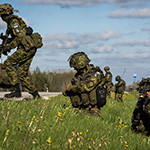 This CNS report analyzes key NATO states’ threat perceptions of Russia, and provides recommendations in advance of the July 2016 NATO summit in Warsaw.
This CNS report analyzes key NATO states’ threat perceptions of Russia, and provides recommendations in advance of the July 2016 NATO summit in Warsaw. - NATO and the Baltics: Regional Views on Deterrence Needs
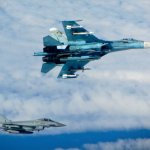 Some NATO members are pushing for a stronger conventional deterrent against Russia, while acknowledging recent measures are steps in the right direction.
Some NATO members are pushing for a stronger conventional deterrent against Russia, while acknowledging recent measures are steps in the right direction. - Removing Risk: Replacing High-Risk Radiological Sources with Alternatives
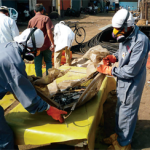 By examining the potential for replacing high-risk radiological material, a road map can be drawn and used to increase nuclear security and prevent nuclear terrorism.
By examining the potential for replacing high-risk radiological material, a road map can be drawn and used to increase nuclear security and prevent nuclear terrorism.
Select Bibliography (Recent)
- “The Proliferation of Weapons of Mass Destruction in the Modern World: Trends and Changing Regimes,” in International Politics in Times of Change, Nicholas Tzidakis, Ed. Springer 2012.
- “How to Unsnag US-South Korea Nuclear Negotiations,” Bulletin of the Atomic Scientists, September 25, 2012.
- “Nuclear Power and Proliferation: The Risks of the Nuclear Renaissance,” in Nuclear Power and Energy Security in Asia, Rajesh Basrur, Cole Harvey, Koh Swee Lean Collin, eds., (New York, NY: Routledge, 2012).
- “The Seoul Nuclear Security Summit: How Much of a Success?” Academic Paper Series, Korea Economic Institute, May 23, 2012.
- “Domestic and International Politics of Spent Fuel in South Korea: Are We Approaching Meltdown?” with Seong-Won Park and Lawrence Scheinman, Academic Paper Series: On Korea, Vol. 4, Korea Economic Institute, 2011.
- “Going Global: Issues Facing South Korea as an Emerging Nuclear Exporter,” with Chen Kane and Stephanie Lieggi, Tomorrow’s Northeast Asia: Joint US-Korea Academic Studies, Volume 21, Korea Economic Institute, 2011.
- “The IAEA’s Political Balancing Act,” with Michelle Dover, World Politics Review, September 2011.
- “Bringing Belarus Back to the Table,” WMD Junction, September 20, 2011.
- “Toward the Global Norm: Supporting the Minimization of Highly Enriched Uranium in the Civilian Sector,” with Cole J. Harvey and David Slungaard, Issue Brief No. 12, Asan Institute, June 2011.
- “Japan’s Nuclear Crisis: The Fine Line between Security and Insecurity,” Bulletin of the Atomic Scientists, March 22, 2011.
- “Nuclear Power and Spent Fuel in East Asia: Balancing Energy, Politics and Nonproliferation,” with Ferenc Dalnoki-Veress, Stephanie Lieggi, and Lawrence Scheinman, The Asia-Pacific Journal vol. 25, June 21, 2010.
- “US International Nuclear Energy Policy: Change and Continuity,” Nuclear Energy Futures Paper #10, Centre for International Governance Innovation, January 2010.
- “Reducing and Regulating Tactical (Nonstrategic) Nuclear Weapons in Europe: Moving Forward?” with Johan Bergenas, William Potter, and Nikolai Sokov, April 2010.
- “Managing U.S. Missile Defenses and Russian Concerns,” with Dennis Gormley and Nikolai Sokov, Four Emerging Issues in Arms Control, Disarmament, and Nonproliferation: Opportunities for German Leadership, James Martin Center for Nonproliferation Studies, July 14, 2009.
- “Reducing and Regulating Tactical (Nonstrategic) Nuclear Weapons in Europe,” with William Potter and Nikolai Sokov, December 2009.
- “The Russian Nuclear Industry: Status and Prospects,” Nuclear Energy Futures Paper #3, Centre for International Governance Innovation, January 2009.
- “Congress, Culture, and the Caspian,” with David King, in The Limits to Culture: Foreign Policy, Islam, and the Caspian, Brenda Shaffer, ed., (Cambridge, MA: Belfer Center for Science and International Affairs, 2006).
